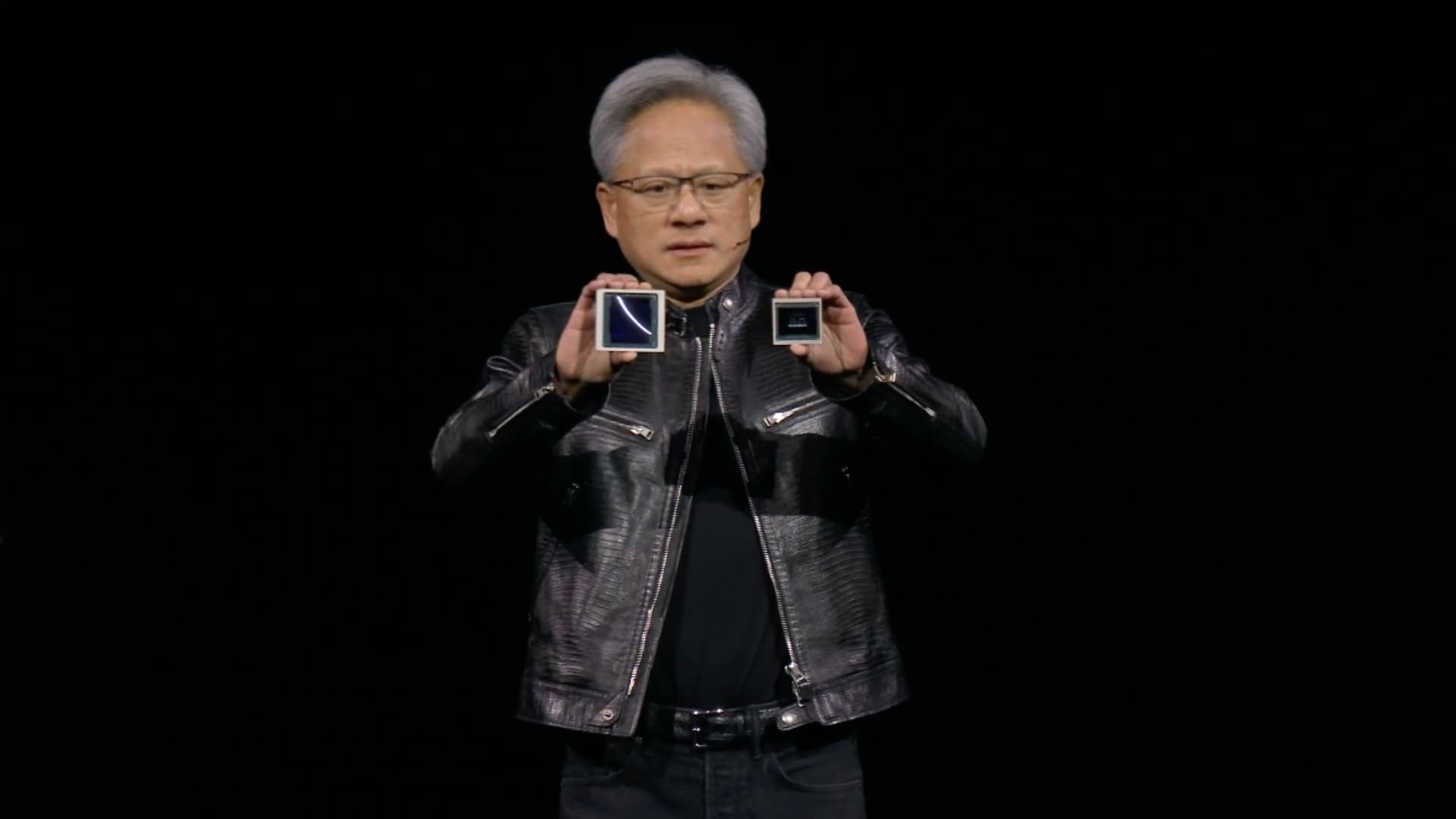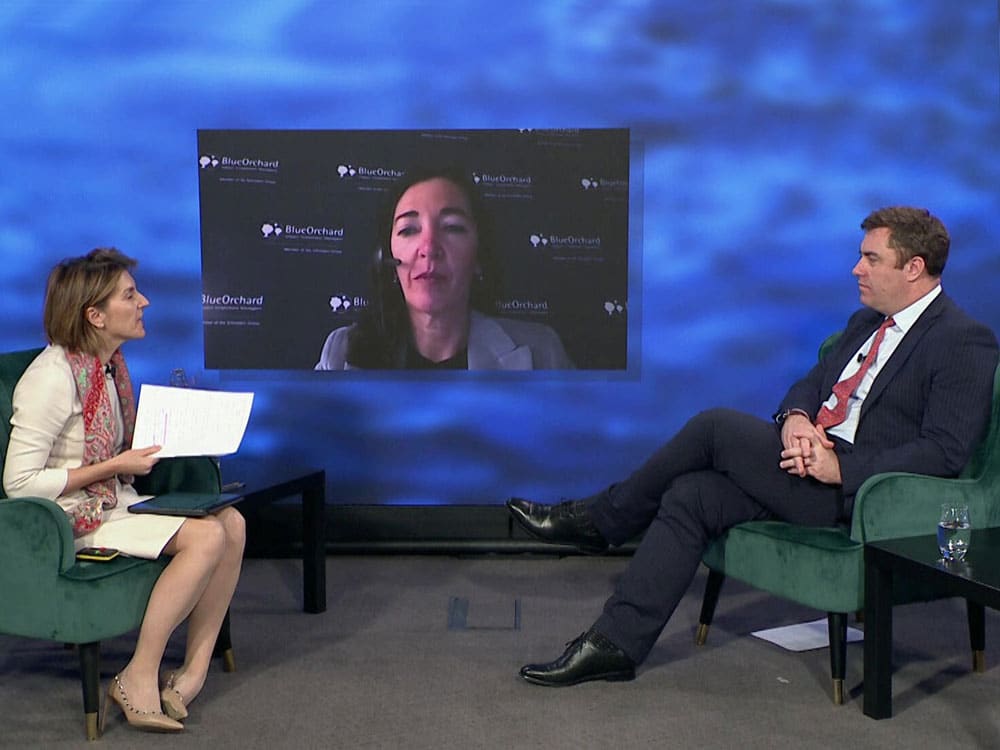Trump's AI Chip Export Policy: Nvidia CEO's Plea For Regulatory Reform

Table of Contents
The Genesis of Trump's AI Chip Export Policy
Trump's AI chip export policy emerged from the intensifying US-China technological rivalry, fueled by concerns about national security and economic dominance. The policy's roots lie in the Trump administration's broader strategy to counter China's growing technological prowess, particularly in AI and advanced computing. This strategy involved a series of executive orders and legislation aimed at restricting the export of advanced semiconductor technologies to China.
The geopolitical context is crucial. The US viewed China's ambitions in AI as a potential threat, fearing its application in military and surveillance technologies. This concern fueled the desire to limit China's access to the most advanced AI chips, vital for developing sophisticated AI systems.
Key legislation and executive orders underpinning the policy include:
- Specific restrictions on the export of advanced chips with certain processing capabilities to entities in China.
- Increased scrutiny of transactions involving sensitive technologies, including AI chip manufacturing equipment.
- Blacklisting of certain Chinese companies involved in AI development.
Impact:
- Directly impacted US companies like Nvidia, AMD, and Intel, limiting their access to significant revenue streams from the Chinese market.
- Initially met with a mixture of concern and apprehension from the industry, with many companies expressing fears about the economic consequences.
Nvidia's Position and Jensen Huang's Concerns
Nvidia, a major player in the GPU market crucial for AI development, holds a substantial presence in the Chinese market. The export restrictions imposed by Trump's AI chip export policy significantly impacted Nvidia's revenue and growth projections. Jensen Huang, Nvidia's CEO, has been vocal in his calls for regulatory reform, arguing for a more balanced approach that considers both national security and economic realities.
Huang's public statements and lobbying efforts have highlighted:
- The substantial financial losses incurred by Nvidia due to the export restrictions.
- The need to maintain US technological leadership, arguing that overly restrictive policies hinder innovation.
- Concerns that stifling access to advanced chips could accelerate China's efforts to develop its own indigenous technologies.
Impact on Nvidia:
- Significant reduction in revenue from the Chinese market.
- Increased pressure to diversify its customer base and reduce dependence on any single market.
- Potential for long-term damage to Nvidia's competitive positioning.
Economic Implications of the AI Chip Export Policy
Trump's AI chip export policy carries significant economic implications, extending beyond the immediate impact on US companies like Nvidia. The policy threatens to reduce US economic competitiveness in the global AI market. The potential for job losses within the US semiconductor industry and related sectors is a significant concern. Furthermore, the restrictions disrupt global supply chains, creating uncertainty and potentially increasing costs for businesses worldwide.
Consequences:
- China might accelerate its efforts to develop its own domestic advanced chip industry, reducing US technological dominance.
- US companies risk losing market share to competitors from other countries that are not subject to similar restrictions.
- A collaborative approach, focusing on technology sharing and cooperation, may offer far greater economic benefits than restrictive policies.
Arguments for and Against Regulatory Reform
The debate surrounding Trump's AI chip export policy centers on balancing national security concerns with economic competitiveness. Proponents of maintaining strict export controls emphasize the risk of advanced AI technology falling into the wrong hands, potentially leading to military applications or misuse in authoritarian regimes.
However, counter-arguments suggest that a more nuanced and flexible approach is necessary. Blanket bans may hinder innovation and create opportunities for competitors. Targeted export controls, focusing on specific high-risk applications, could mitigate security concerns while allowing for legitimate commercial activities.
Key Considerations:
- National security concerns are paramount, but overly broad restrictions can stifle innovation and economic growth.
- Targeted export controls, focusing on specific applications or entities, might be a more effective approach.
- International cooperation on AI regulation could foster a more balanced and effective global framework.
Potential Future Scenarios and Policy Adjustments
The future of Trump's AI chip export policy remains uncertain, subject to evolving geopolitical dynamics and economic pressures. The current administration might adjust the policy, potentially easing restrictions in some areas or tightening them in others. International collaborations on AI chip regulation could emerge, leading to a more harmonized global framework.
Potential Outcomes:
- Renegotiation or revision of existing export restrictions based on evolving technological advancements and geopolitical considerations.
- Increased international cooperation in setting standards and regulations for AI chip technology.
- The long-term global technological landscape will be significantly shaped by the choices made concerning AI chip export controls.
Conclusion: The Future of Trump's AI Chip Export Policy and the Need for Dialogue
The debate surrounding Trump's AI chip export policy is complex, involving intricate considerations of national security, economic competitiveness, and technological innovation. Nvidia's plea, reflected in Jensen Huang's public statements, highlights the need for a balanced approach. While national security concerns are valid, overly restrictive policies risk hindering innovation and harming the US economy. The future requires ongoing dialogue and policy adjustments to ensure that national security concerns are addressed without stifling economic growth and technological leadership. We need informed discussions and engagement with policymakers to navigate the complexities of "Trump's AI chip export policy" and shape its future. Further research into this critical policy area is crucial for informed public discourse and effective policy-making.

Featured Posts
-
 Gaza Bound Aid Ship Attacked By Drones Ngo Details
May 03, 2025
Gaza Bound Aid Ship Attacked By Drones Ngo Details
May 03, 2025 -
 Saudi Arabias Revised Abs Regulations A Market Shifting Development
May 03, 2025
Saudi Arabias Revised Abs Regulations A Market Shifting Development
May 03, 2025 -
 Shrinking Assets At Schroders Impact Of Q1 Stock Market Withdrawals
May 03, 2025
Shrinking Assets At Schroders Impact Of Q1 Stock Market Withdrawals
May 03, 2025 -
 Refuerzan Seguridad Sistema Penitenciario Con 7 Vehiculos Adicionales
May 03, 2025
Refuerzan Seguridad Sistema Penitenciario Con 7 Vehiculos Adicionales
May 03, 2025 -
 Check The Bbc Two Hd Schedule For Newsround
May 03, 2025
Check The Bbc Two Hd Schedule For Newsround
May 03, 2025
